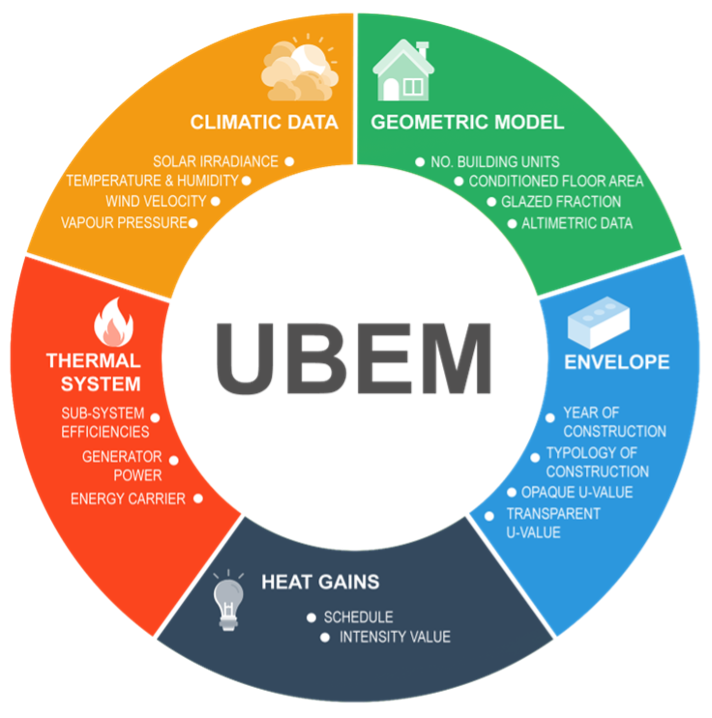
A national database for urban energy modelling

The quantification and optimisation of energy usage within buildings, to reduce the emission of climate-changing gases into the atmosphere, involves the energy simulation of blocks, districts, and entire cities. In this regard, Urban Building Energy Models (UBEMs) are crucial tools for assessing energy performance on an urban scale. However, the high degree of data uncertainty associated with creating such models requires generating a database containing the main building and energy characteristics of the national building stock.
Politecnico di Torino is among the partners of the URBEM (Urban Reference Buildings for Energy Modelling) project, funded by the Italian Ministry of University and Research. Coordinated by Politecnico di Milano, the research group also includes the University of Padua, the University of Catania, and the University of Rome 'La Sapienza'; among the affiliated institutions are the University of Florence, the University of Pavia, the Iuav University of Venice, the University of Calabria, and the University of Rome 'Tor Vergata'.
The Department of Energy “Galileo Ferraris” - DENERG of Politecnico di Torino is participating in the project with the work of Professor Vincenzo Corrado, Associate Professor Ilaria Ballarini, postdoctoral researcher Mamak P. Tootkaboni, and Ph.D. student Matteo Piro.

The objective of the project and the research unit of Politecnico di Torino is the creation of a national database of building archetypes, i.e., typological descriptions of the main construction and energy characteristics of representative buildings, for use on a national scale. URBEM’s project aims to develop a robust methodology by analysing and combining data from various local, regional, and national information systems.
Therefore, the project targets are to become a database of reference buildings with various intended uses, models that can be used to simulate energy performance and different urban renovation scenarios.
The URBEM database is intended for widespread use by public administrations to promote energy efficiency policies to decarbonise the Italian building stock. The work carried out by the Politecnico team, in collaboration with Politecnico di Milano and the other partner Universities, thus takes on the fundamental task of forecasting the energy consumption of buildings in alternative and future scenarios. This will contribute to bridging the knowledge gap that characterises the current energy performance status of the Italian building stock.